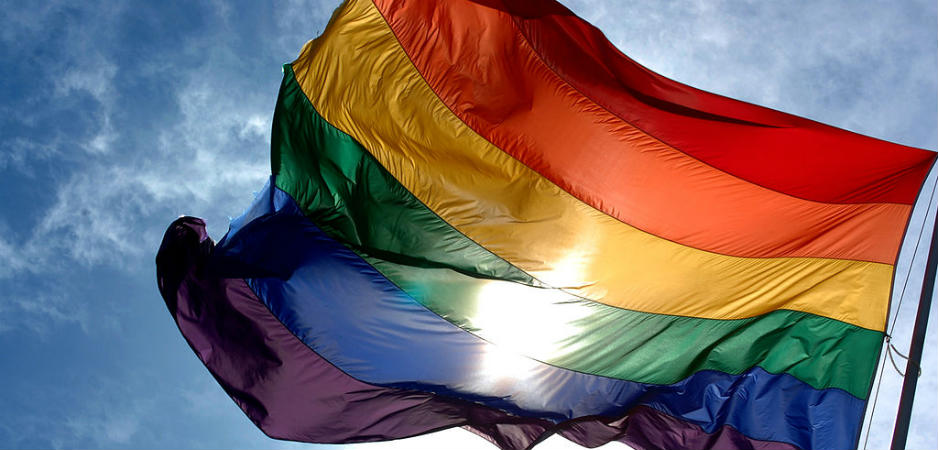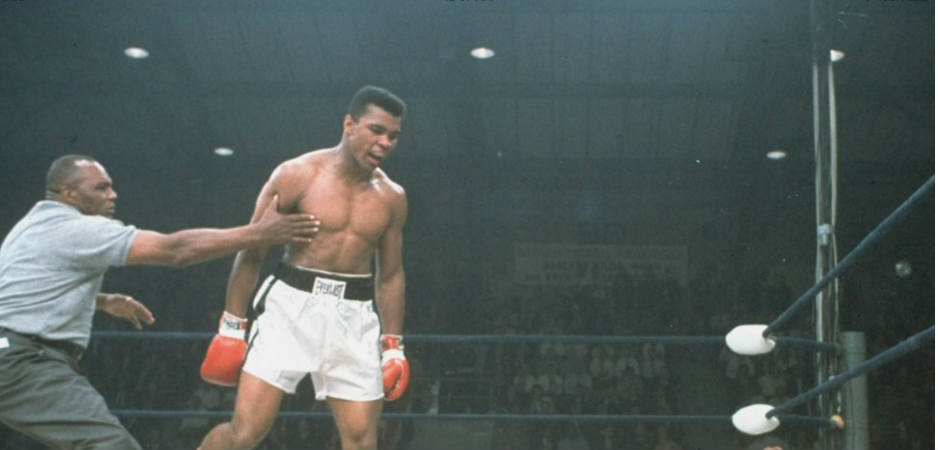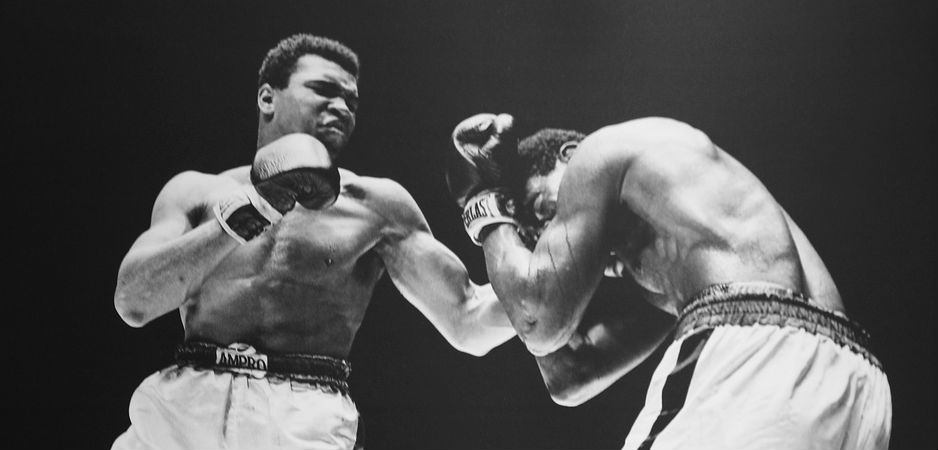Loss of community, individual alienation, increasing anger, lax gun laws and extreme ideologies are leading to mass shootings in the US.
This week, Hillary Clinton claimed the Democratic nomination for president to fight Donald Trump, the Republican candidate. Bernie Sanders, Clinton’s rival, has all but thrown in the towel and is planning to meet her next week. His main goal now is to make his party more progressive.
It seems that Paul Ryan, the Republican speaker of the House of Representatives, is also turning a touch progressive. He has termed Trump’s comments “the textbook definition of a racist comment” after the mercurial Republican candidate criticized a federal judge overseeing the Trump University lawsuit. In Trump’s eyes, the judge’s Mexican heritage is a source of bias, and he continues to question whether he is “receiving a fair trial.”
Ethnicity, race and religion continue to play a role in most societies and the US is no exception. Muhammad Ali was buried this week and, during his heyday, his life captured the fault lines of the US in a most remarkable way. Ali began as Cassius Clay but converted to Islam after suffering discrimination despite winning the Olympic gold medal. He was once a member of the Nation of Islam like the eloquently dangerous Malcolm X. Both were part of new generation of aggressive “negroes” who were rejecting the last names and the religions of their white slave masters.
It is important to remember that, during Ali’s time, segregation was alive and well. Even after representing the US in the Olympics, he was refused service in a restaurant. The US supported apartheid and saw Nelson Mandela as a dangerous left-wing terrorist. Ali challenged white domination and “its white images” like “Jesus, Wonder Woman, Tarzan and Rocky.” He brashly declared: “I am the part you won’t recognize, but get used to me. Black, confident, cocky. My name, not yours. My religion, not yours. My goals, my own. Get used to me.”
Ali’s genius lay in connecting American racism at home to its imperial military expansionism abroad. As the brilliant Peter Isackson points out in Fair Observer, within a year Martin Luther King, Jr. was making a similar connection. King called for the end of the Vietnam War by declaring: “I speak for the poor of America who are paying the double price of smashed hopes at home and death and corruption in Vietnam.” King went on to call for “a radical distribution of economic and political power” and saw “the evils of racism, economic exploitation and militarism” as “all tied together” that had to be tackled together.
Ali was as much a part of the heady 1960s as the Beatles. This trash talking boxer from Louisville, Kentucky even refused to serve in the Vietnam War. In his memorable words, “My conscience won’t let me go shoot my brother, or some darker people, or some poor hungry people in the mud for big powerful America. And shoot them for what? They never called me nigger, they never lynched me, they didn’t put no dogs on me, they didn’t rob me of my nationality, rape or kill my mother and father … How can I shoot them poor people? Just take me to jail.”
And to jail he went before he was eventually rehabilitated and embraced even by Republican presidents. By this time, the US was focused on the godless Soviet Union and had jumped into bed with the mujahedeen, some of whom went on to form the Taliban. Ali himself jumped into bed with Ronald Reagan for a simple reason: “He’s keeping God in schools and that’s enough!”
Then as now, God presents a bit of a problem. Ideas about God are often accompanied about what is the good life. In 2015, the Irish voted to legalize gay marriage. Cardinal Raymond Leo Burke, the former head of the highest court at the Vatican, was incredulous at the Irish “defiance of God.” In South Carolina, abortion after 20 weeks of conception is now illegal and doctors who flout the law will go to jail. This law is rooted in the Christian belief that life begins at conception and abortion is a form of murder.
Just as many Christians are ill at ease with homosexuality and gay marriage, so are many Muslims. Sodomy is punishable by death in Saudi Arabia, a country that The Atlantic termed the kingdom in the closet where restrictions on interactions between men and women make it a lot easier to be gay than straight. In India and 41 other former British colonies, the dreaded section 377 of the penal codes outlaws homosexuality.
Conservative Christians, fervent Muslims and devout Hindus may not agree as to how to pray or what not to eat, but they tend to retain reservations against homosexuality and gay marriage. This weekend, cities across the US held gay pride parades. People wore daring costumes, festooned buildings with colorful banners and engaged in Bacchanalian revelry. In the US, homosexuality is increasingly celebrated as a natural orientation. Cities are starting to become more hedonistic. Many now expect to make sexual choices with the same freedom with which they make political or economic choices.
Conservative Americans do not like this trend. As gay pride parades took place across the country, two took up guns to impose virtue in the land of Sodom and Gomorrah. Santa Monica Police Department arrested a man with assault rifles, ammunition and explosives near the local gay pride event. In Orlando, the police were not so fortunate. Omar Mateen, a 29-year-old, killed 50 people and wounded 53 at a gay club before he was killed by the police. Before doing so, he called 911, the number for emergency services in the US, and declared his allegiance to the Islamic State (IS).
Mateen, a US citizen of Afghan descent, has perpetrated the worst US mass shooting in the last 25 years. He bought his guns legally over the past few days even though the Federal Bureau of Investigation (FBI) had interviewed him thrice in connection with two different cases. Gun control advocates are already pointing to Florida’s rather liberal gun laws. The Gun Violence Archive records 372 mass shootings for 2016 already. Mass shootings are incidents where four or more people are injured or killed. The 2016 shootings have led to 475 killed and 1,870 wounded. To most people, it is obvious that getting guns is a little too easy, especially powerful weapons like assault rifles.
Trump is blaming “radical Islamic terrorism” and not lax gun laws. He is calling for the US to get “tough, smart and vigilant.” He is excoriating President Barack Obama for being soft on security and asking him to “immediately resign in disgrace.” In late 2015, Trump called for a ban on all Muslim travel to US. He has doubled down on that stand and is engaging in Islamophobia to increase his popular appeal.
During Ali’s era, Islamophobia did not quite exist even when Malcolm X spouted fiery rhetoric replete with claims that blacks were superior to whites. Then, Malcolm X acted as the bulldog of Elijah Muhammad, the founder of the Nation of Islam, claiming that the white race was incapable of generosity or tolerance and had to be fought to the bitter end. In the midst of his fiery rhetoric, Malcolm X managed to touch upon key issues such as racism, inequality and exploitation. Many were uneasy with his rhetoric, but they did not start fearing Islam as a result of it. The Professor James Moriarty of that era was the godless communist who was hell bent on destroying property, family and all decent values. He also had the atom bomb.
 Today, the times have changed. On the one hand, American society has become more tolerant of what was once deviant sexuality. On the other hand, it has experienced a loss of community. The pace and scale of change is causing both insecurity and isolation among individuals. College fees are high, health care is expensive, inequality is rising, jobs are hard to find and wages are not keeping pace with the rise in the cost of living. Ali was buried like a saint, but African Americans are still less equal and one in three black men is likely to go to jail in his lifetime. The white working class has fallen from grace too and, in the post-bailout era after the Great Recession, is finding its living standards slipping. As George Packer points out in the The New Yorker, alcohol, opioids and suicide have been increasing white mortality rates.
Today, the times have changed. On the one hand, American society has become more tolerant of what was once deviant sexuality. On the other hand, it has experienced a loss of community. The pace and scale of change is causing both insecurity and isolation among individuals. College fees are high, health care is expensive, inequality is rising, jobs are hard to find and wages are not keeping pace with the rise in the cost of living. Ali was buried like a saint, but African Americans are still less equal and one in three black men is likely to go to jail in his lifetime. The white working class has fallen from grace too and, in the post-bailout era after the Great Recession, is finding its living standards slipping. As George Packer points out in the The New Yorker, alcohol, opioids and suicide have been increasing white mortality rates.
Like many other countries today, the US is a divided and angry land. Many who feel marginalized fall prey to extremist ideology of various ilks. The vast majority of mass shootings are done by deeply alienated young white men. At the same time, attacks by Muslims are rising too and tend to be deadlier than by others. The Islamic State is now appealing to those with roots in the Middle East and South Asia instead of African Americans like Malcolm X. Its clerics, preachers and social media marketers can point to Guantanamo Bay, the Iraq War, the drone killings in Afghanistan and other interventions by the US in the Muslim world to stoke resentment.
Just like Ali did in the past, some young Muslims connect the US intervention abroad to the discrimination they feel at home. The alienation they feel in their daily lives draws them to an imagined utopian community infused with virtue, camaraderie, service, justice and a love of God. This community is also supposedly a part of their ancestral tradition. Over time, these radicalized individuals start seeing the US as a land of sin where lust, greed and deceit dominate. For them, what could be a better time and place to restore God’s will on this land than a gay club wallowing in sin and celebrating gay pride?
*[You can receive “The World This Week” directly in your inbox by subscribing to our mailing list. Simply visit Fair Observer and enter your email address in the space provided. Meanwhile, please find below five of our finest articles for the week.]
The Fourth and Final Disappearance of Muhammad Ali
Many of the issues Muhammad Ali brought to the fore are still here, some in aggravated form.
An enigmatic American cultural icon disappeared this week, for the fourth and final time. Muhammad Ali is now routinely called by the media “the greatest sportsman of the 20th century,” but his iconic status had much more to do with one of the bitterest and still unresolved moments of American history than with athletic accomplishment.
Ali, the defiant draft-dodger, encapsulated the complex reality of psychedelic ‘60s, remembered as an epoch of artistic innovation, rebellion, anti-authority protest, transformation, liberation and unbridled expression. Cassius Clay emerged in 1960 as a graceful innovator in the techniques and style of boxing, quickly gained a reputation as a rebel against the manners of the age, morphed into a daring voice of protest, helped transform the notion of patriotism and justice, had a serious impact as a liberator of his race and by the end of the… Read more
A Presidential Candidate Exploits America’s Democratic Institutions
Hillary Clinton’s presidential campaign has exploited and negated the structures of American democracy.
Given a record hostile to traditional Democratic Party values, Hillary Clinton has run a dirty presidential campaign. It is now escalating as she and supporters manipulate key democratic (and Democratic Party) institutions.
The media—who have given millions to the Clinton Foundation—first said they would call the election for her on June 7 during the primary of California. On June 6, The New York Times sent a new alert saying, “Hillary Clinton now has enough delegates to become the Democratic nominee for president, according to The A.P.” This appears to be an attempt to depress voter turnout and distract from possible mass disenfranchisement in the most populous state and five others whose June 7 elections comprise 15% of pledged delegates.
The media have also amplified calls for Bernie Sanders’ strikingly successful candidacy to end. Why? Because he remains in a competitive election that will… Read more
Final Bell Sounds for Muhammad Ali: The Greatest
Like any towering symbol, Muhammad Ali had very human contradictions.
On October 2, 1980, Muhammad Ali, then aged 38, and Larry Holmes, the heavyweight champion of the world, entered a temporary arena built at Caesar’s Palace, Las Vegas. A gate of nearly 25,000 had paid $5,766,125—a record in its day. “It wasn’t a fight; it was an execution,” wrote Ali’s biographer Thomas Hauser. After ten sickeningly one-sided rounds, Ali’s trainer Angelo Dundee signaled Ali’s retirement. Ali’s aide and confidante Bundini Brown pleaded: “One more round.” But, Dundee snapped back: “Fuck you! No! … The ballgame’s over.”
In a way, he was right: One game had indeed finished. Ali fought only once more. His health had been deteriorating for several years before the ill-advised Holmes fight and the savaging he took repulsed even his sternest critics. Ali the “fearsome warrior,” as Hauser calls him, would disappear, replaced by a “benevolent monarch and ultimately to a benign venerated figure… Read more
The Rise of the Chatbots
The era of chatbots is here, with tech giants making a big push for their mass market adoption. Is it time to embrace them?
The tech world is all agog these days about chatbots. These are automated computer programs that simulate online conversations with people to answer questions or perform tasks. While chatbots have been around in various rudimentary forms for years—think of Clippy, Microsoft’s paper clip virtual assistant—they have been taking off lately as advances in machine learning and artificial intelligence make them more versatile than ever. Among the most well-known chatbots: Apple’s Siri.
In rapid succession over the past few months, Microsoft, Facebook and Google have each unveiled their chatbot strategies, touting the potential for this evolving technology to aid users and corporate America with its customer-service capabilities as well as business utility features like organizing a meeting. Yahoo joined the bandwagon recently, launching its first chatbots on a chat app called Kik Messenger… Read more
We Are a Society of Half-Adults
It is a formidable proposition, in today’s context, to decide what’s real.
To borrow from Charles Dickens, it is the best of times, it is the worst of times. To highlight another paradigm, we are traversing along in a society where impulse is given its way. In the process, we are increasingly not willing to grow up. We are growing up, in a way, but only as half-adults. More than that, we are simply running after our fantasies and illusions.
You need not search the horizons for a functional retort to such dilemmas: a dilemma compounded by perplexity. We are just not able to catch up with ourselves. We are often defeated by our own creation—a simple extension. Its identity? You got it right: speed.
What’s more, there are crowds everywhere, and we are almost lost to ourselves and bored on the basis of a mundane existence. Blame it on the mores of our highly-inflationary world and… Read more
The views expressed in this article are the author’s own and do not necessarily reflect Fair Observer’s editorial policy.
Photo Credit: Ludovic Bertron
 We bring you perspectives from around the world. Help us to inform and educate. Your donation is tax-deductible. Join over 400 people to become a donor or you could choose to be a sponsor.
We bring you perspectives from around the world. Help us to inform and educate. Your donation is tax-deductible. Join over 400 people to become a donor or you could choose to be a sponsor.
Support Fair Observer
We rely on your support for our independence, diversity and quality.
For more than 10 years, Fair Observer has been free, fair and independent. No billionaire owns us, no advertisers control us. We are a reader-supported nonprofit. Unlike many other publications, we keep our content free for readers regardless of where they live or whether they can afford to pay. We have no paywalls and no ads.
In the post-truth era of fake news, echo chambers and filter bubbles, we publish a plurality of perspectives from around the world. Anyone can publish with us, but everyone goes through a rigorous editorial process. So, you get fact-checked, well-reasoned content instead of noise.
We publish 2,500+ voices from 90+ countries. We also conduct education and training programs
on subjects ranging from digital media and journalism to writing and critical thinking. This
doesn’t come cheap. Servers, editors, trainers and web developers cost
money.
Please consider supporting us on a regular basis as a recurring donor or a
sustaining member.
Will you support FO’s journalism?
We rely on your support for our independence, diversity and quality.











